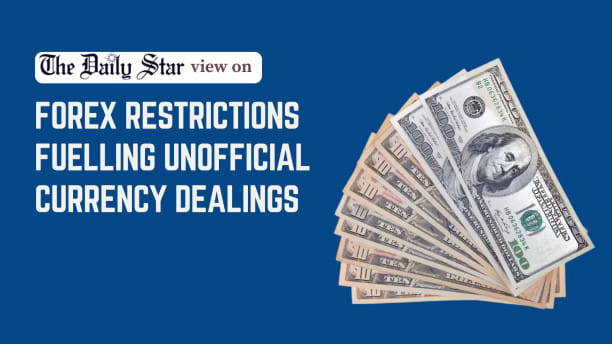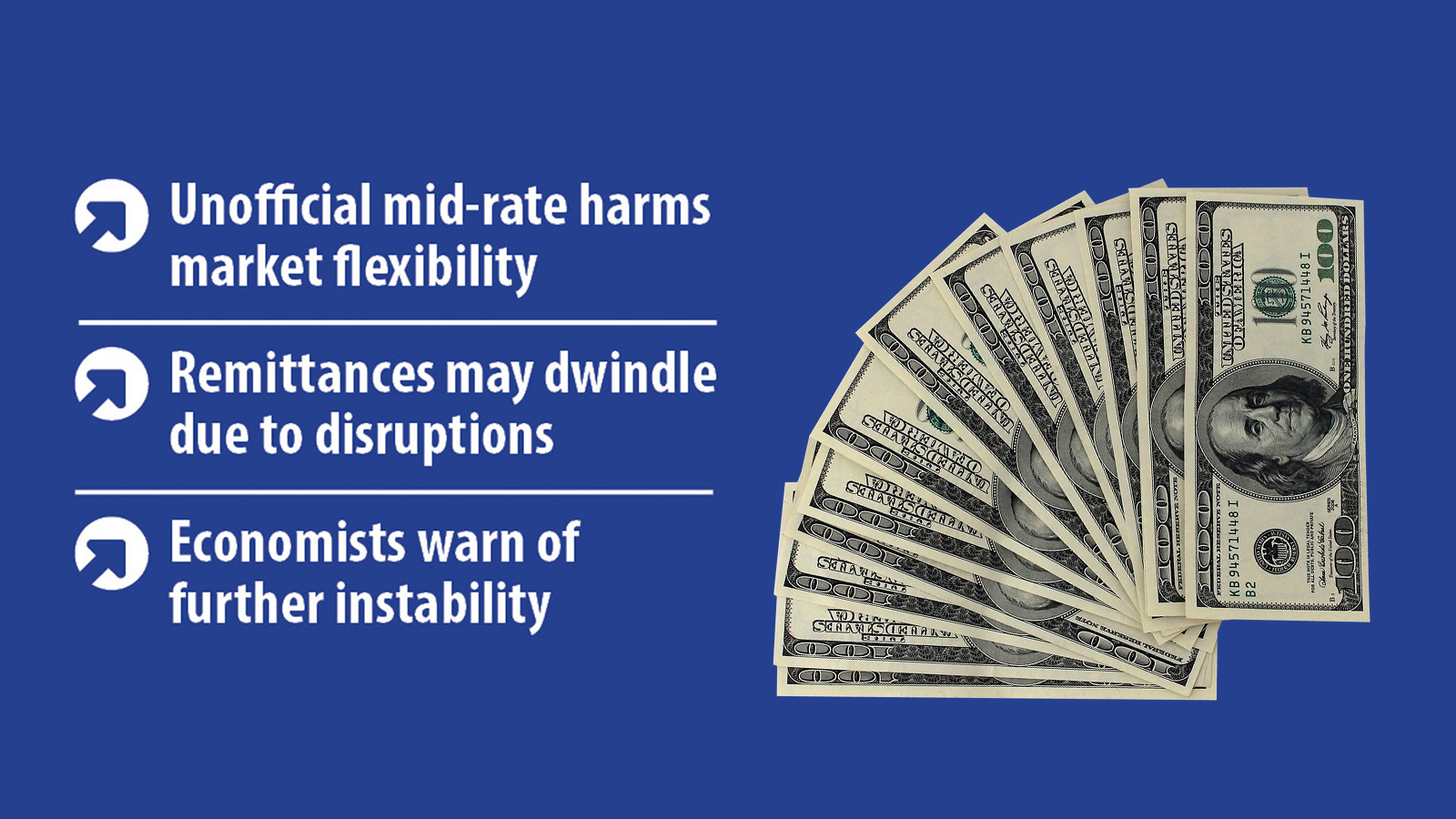Bangladesh Bank must help stabilise forex market

More than seven months after introducing the crawling peg exchange rate system to stabilise the foreign exchange market, the Bangladesh Bank has decided to be more flexible with the rates. According to a report in this daily, it is now allowing banks to trade foreign currency freely. However, this decision comes with a caveat, which is proving to be a headache for the banks.
According to the report, while the central bank has permitted banks to negotiate foreign currency rates following market trends—based on the recommendation of the International Monetary Fund—it still maintains a firm grip on the trade. To be exact, it is still operating with an unofficial mid-rate, which climbed to Tk 119 per dollar from Tk 117 on December 31. Bank insiders say this is preventing banks from truly negotiating the rates, undermining the central bank's intent to liberalise the trade. As a result, while banks are officially quoting around Tk 121-122 per dollar, the actual rates charged to importers range between Tk 125 and Tk 128, according to a cement mill's managing director. Moreover, under the new exchange rate regime, banks are required to maintain uniform rates for remittances and export earnings, which is causing them to lose out on profits, a private bank official said.
This discrepancy is concerning, as it has worrying consequences beyond shrinking profit margins for banks. For example, importers are increasingly using a workaround system where banks show an official rate while selling dollars to some importers, but a portion of that currency is sourced from exchange houses and aggregators. This is akin to hundi, which is illegal in Bangladesh. The mismatch in exchange rates also poses a risk to the country's prospect of remittance earnings, which hit a record $2.64 billion in December thanks to flexible exchange rates. But under the new system, remitters are more likely to turn to unofficial channels to send money to their families. If that happens, the economy will take a hit, and it will be bad news for our already shaky foreign exchange reserves.
Under this circumstance, it would be prudent for Bangladesh Bank to let go of all its control. As economists have repeatedly suggested, the central bank should allow the market to determine exchange rates while enforcing strict monitoring to prevent illegal trading and manipulation. This approach not only aligns with global best practices, but also offers an opportunity to stabilise our volatile forex market and shore up confidence in our currency.



 For all latest news, follow The Daily Star's Google News channel.
For all latest news, follow The Daily Star's Google News channel. 


Comments